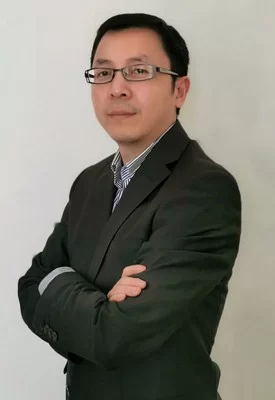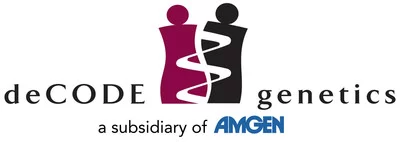BEIJING, June 30, 2020 — A news report by China.org.cn on China’s remote graduation under COVID-19:   Graduation season is drawing near. However, with COVID-19 still lurking, most Chinese universities are yet to resume to normal. This has caused substantial obstacles for both graduation ceremonies and graduates looking…
Sweeping Workplace Changes Expected in a Post-pandemic World, Says Research From The Adecco Group
Businesses and workers call for greater flexibility, questions raised over the hours-based contract, and a new empathetic leadership profile emerges ZURICH, June 30, 2020 — Workers demand greater flexibility after coronavirus, with a 50/50 split of remote and office time confirmed as…
KAIST Forum Envisions Education in the Post-COVID Era
Global leaders including the CEOs of Minerva and Coursera to join the KAIST online forum to discuss how to facilitate inclusive educational environment amidst the ever-growing digital disparities DAEJEON, South Korea, June 22, 2020 — An international forum hosted by the KAIST Global Strategy Institute will examine how the disruptions…
CDEL Announces Formation of Independent Special Committee to Review Preliminary Non-Binding Proposal to Acquire the Company
BEIJING, June 22, 2020 — China Distance Education Holdings Limited (NYSE: DL) ("CDEL", or the "Company"), a leading provider of online education and value-added services for professionals and corporate clients in China, today announced that its board of directors (the "Board") has formed a special committee (the "Special Committee") consisting…
New Oriental Announces Proposed Debt Offering
BEIJING, June 22, 2020 /PRNewswire-Asia/ — New Oriental Education & Technology Group Inc. (the "Company" or "New Oriental") (NYSE: EDU), the largest provider of private educational services in China, today announced the proposed offering of senior notes outside the United States in reliance on Regulation S under the Securities Act of 1933,…
Blackbaud Customers Around the World Rely on Technology to Support COVID-19 Research and Innovation
 |
Higher education and healthcare institutions turn to Blackbaud solutions to power fundraisers for COVID-19 vaccines, lifesaving equipment
CHARLESTON, South Carolina, June 9, 2020 /PRNewswire/ — Blackbaud (NASDAQ: BLKB), the world’s leading cloud software company powering social good, is supporting key higher education and healthcare institutions around the world with the technology needed to effectively fundraise for COVID-19 research and essential equipment, including potential vaccine breakthroughs, low-cost ventilator production and methods to treat the virus and slow its spread.
"Throughout the world, many of our customers are on the frontlines of COVID-19 relief and having the cloud software in place to support their missions has never been more critical," said Mike Gianoni, president and CEO, Blackbaud. "We have been continually amazed by our customers globally and their ingenuity during this time and are proud to support their efforts through reliable and highly effective technology."
Fundraising for COVID-19 Vaccine Research in Australia
Blackbaud recently helped the University of Queensland (UQ) in Brisbane, Australia launch a peer-to-peer fundraising campaign for COVID-19 vaccine research. Blackbaud’s leading peer-to-peer fundraising solutions enable social good organisations to quickly create fundraising campaigns driving current and new supporters to share their passion for an organisation’s mission. UQ researchers need to raise $4.5 million in addition to the support they’ve received from the government and philanthropic partners, to help them develop a vaccine to end COVID-19.
"We are incredibly grateful for Blackbaud’s support in our efforts to facilitate philanthropic giving to accelerate COVID-19 vaccine development at The University of Queensland," said Jennifer Karlson, pro-vice-chancellor of advancement, University of Queensland. "The technology has been a critical gateway for the UQ community to give to this important cause."
Learn more about the approach the UQ COVID-19 vaccine researchers are taking to quickly develop and manufacture a vaccine for the world.
Pushing Toward Bioscience Breakthroughs in Manhattan
Within a month, supporters of The Rockefeller University donated more than $16 million for COVID-19 research, a testament to their confidence in the abilities of Rockefeller’s scientists and the relationships the university has built through its advancement team, which relies daily on Blackbaud fundraising and relationship management solutions, including Blackbaud CRM™ and Blackbaud Internet Solutions™. Beyond the total, the speed of the donations has been critical in this moment of world crisis, when time is of the essence, and federal grant funding could take months to secure.
The Manhattan-based university – a research-driven institution that has seen 25 of its scientists receive the Nobel Prize – closed campus early on in the crisis, except for critical operations laboratories, which currently include 20 labs doing COVID-19 research. The labs are not only collaborating with each other but also across the scientific community, and in some cases internationally, to advance ideas to slow the momentum of the pandemic and identify new therapies.
At the same time, Rockefeller’s advancement team members have used Blackbaud cloud-based solutions as they’ve worked remotely to educate their donor network on the university’s COVID-19 research and related needs. This falls in line with the informative way the university seeks to introduce new friends – providing lectures, seminars and community events to build an appreciation of their scientists’ work and the greater institution. While recent events have been canceled, postponed or shifted to virtual gatherings because of the pandemic, supporters have been encouraged to direct their table and ticket purchases to research, and to consider making an additional gift to support COVID-19 research, as well.
Learn more about Rockefeller’s fundraising success in the wake of COVID-19 and donation opportunities.
The Race to Create Lifesaving Ventilators in Canada
In March, Blackbaud customer, the Montreal General Hospital Foundation and the Research Institute of the McGill University Health Center announced the Code Life Ventilator Challenge, a two-week sprint among engineering and scientific communities to gather the best ideas from around the world to design low-cost and easy to produce emergency ventilators. The challenge received hundreds of submissions from 94 different countries. Nine concepts were selected for an intensive round of testing and three finalists have emerged. The three finalists will receive $200,000, $100,000 and $50,000 CAD in compensation for their design and for sharing it with the world in the fight against COVID-19. Montreal General Hospital Foundation relied on Blackbaud Raiser’s Edge NXT® to power the fundraising component that has made this challenge possible. Montreal General Hospital Foundation is currently preparing a second challenge specifically to expedite refinement, cost-reduction and regulatory compliance of the final designs.
Stay up to date on the Code Life Ventilator Challenge by following updates here.
To learn more about how Blackbaud is supporting its global customers during COVID-19, visit Blackbaud.com/COVID-19-resources.
About Blackbaud
Blackbaud (NASDAQ: BLKB) is the world’s leading cloud software company powering social good. Serving the entire social good community—nonprofits, higher education institutions, K–12 schools, healthcare organisations, faith communities, arts and cultural organisations, foundations, companies and individual change agents—Blackbaud connects and empowers organisations to increase their impact through cloud software, services, expertise and data intelligence. The Blackbaud portfolio is tailored to the unique needs of vertical markets, with solutions for fundraising and CRM, marketing, advocacy, peer-to-peer fundraising, corporate social responsibility, school management, ticketing, grantmaking, financial management, payment processing and analytics. Serving the industry for more than three decades, Blackbaud is headquartered in Charleston, South Carolina, and has operations in the United States, Australia, Canada, Costa Rica and the United Kingdom. For more information, visit www.blackbaud.com or follow us on Twitter, LinkedIn, Instagram and Facebook.
Media Inquiries
[email protected]
Forward-looking Statements
Except for historical information, all of the statements, expectations, and assumptions contained in this news release are forward-looking statements that involve a number of risks and uncertainties, including statements regarding expected benefits of products and product features. Although Blackbaud attempts to be accurate in making these forward-looking statements, it is possible that future circumstances might differ from the assumptions on which such statements are based. In addition, other important factors that could cause results to differ materially include the following: general economic risks; uncertainty regarding increased business and renewals from existing customers; continued success in sales growth; management of integration of acquired companies and other risks associated with acquisitions; risks associated with successful implementation of multiple integrated software products; the ability to attract and retain key personnel; risks associated with management of growth; lengthy sales and implementation cycles, particularly in larger organization; technological changes that make our products and services less competitive; and the other risk factors set forth from time to time in the SEC filings for Blackbaud, copies of which are available free of charge at the SEC’s website at www.sec.gov or upon request from Blackbaud’s investor relations department. All Blackbaud product names appearing herein are trademarks or registered trademarks of Blackbaud, Inc.
Related Links :
http://www.blackbaud.com
World’s First Graduate-level AI University Appoints Renowned Experts to Leadership Team
ABU DHABI, UAE, May 12, 2020 /PRNewswire/ — Mohamed bin Zayed University of Artificial Intelligence (MBZUAI), the world’s first graduate-level, research-based artificial intelligence (AI) university, has appointed two leading experts in AI, education and technology, to its leadership team. Dr. Behjat Al…
Icelandic Genomes Elucidate Neanderthal Heritage of Europeans
Archaic genetic fragments comprising nearly half the Neanderthal genome are circulating in the European gene pool today The average European carries more than 500 such archaic fragments, including SNPs linked to prostate cancer risk, iron retention, blood clotting speed, and…







